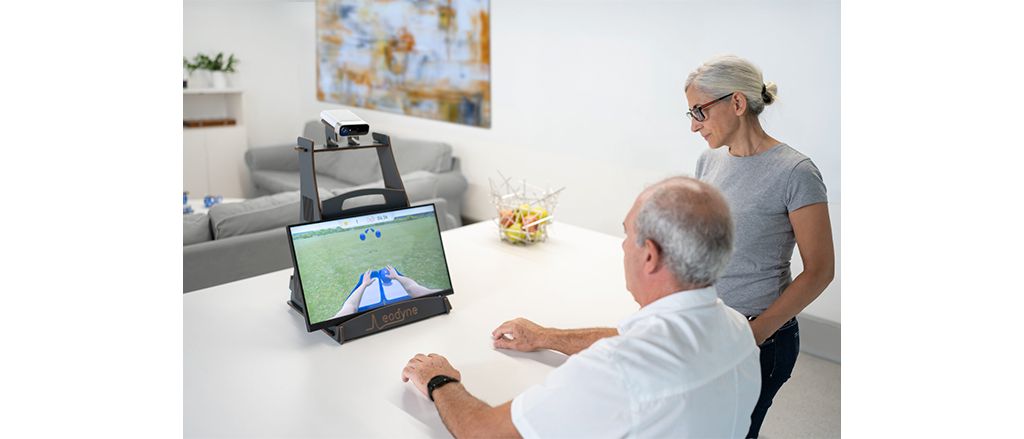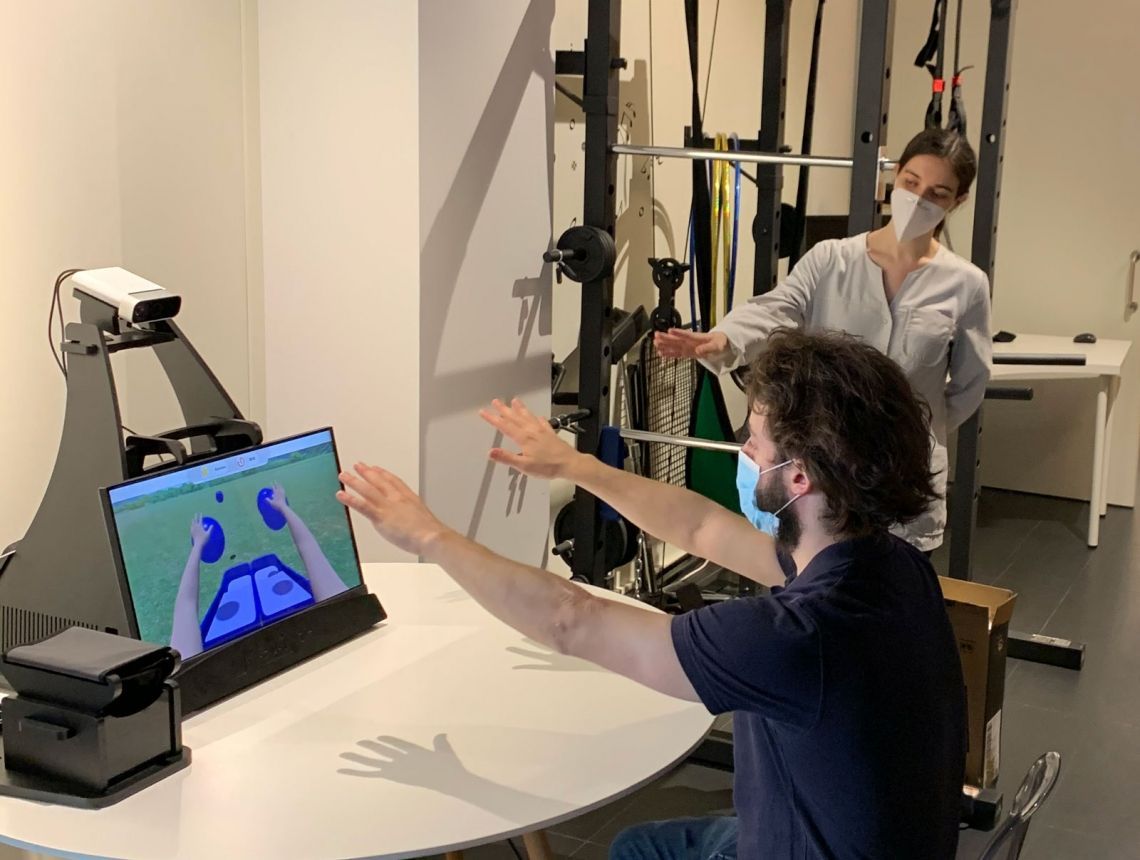
Virtual reality and artificial intelligence offer promising approaches to stroke rehabilitation

Currently, 80 million people worldwide are living with the consequences of stroke. In Europe, the number of stroke survivors is estimated to grow by 25%, up to 4.6 million in 2035, according to data from the World Stroke Organization.
Scalable technology-based systems, that provide user-centered training based on neurorehabilitation principles, may be the solution to increasing treatment time at the hospital and home while reducing cost. Increasing the intensity of the training can be achieved by allowing therapists to offload therapy time and enable the patient to self-administer rehabilitation training whenever they desire and need it.
The end goal of PHRASE is to deliver a platform for prognosis and intervention protocols for AI-based rehabilitation using a cloud database with information from stroke patients and healthy controls that provides an interface, the Virtual Research Environment, with said patient’s information. This integrated platform will inform clinicians to make better treatment decisions in inpatient and outpatient rehabilitation therapies delivered through an AI-enhanced, cloud-based, and VR-delivered intervention. In turn, the impact of these interventions feeds the data pipeline closing the loop between patients and clinicians through advanced technology.

The project is at its initial stages and has just completed its first stakeholder assessment. The assessment involved four stroke patients as well as nine rehabilitation professionals in the fields of neuropsychology, physiotherapy, and speech therapy, at La Salle Institute for Functional Rehabilitation in Madrid (IRF La Salle).
The goal was to find out how stroke patients and rehabilitation professionals perceived the value of the solutions which will be developed in the PHRASE project. It also served as an early usability test, allowing stakeholders to find the best way for patients to interact with the technology for home-based rehabilitation.
The completion of the first stakeholder assessment marks a major milestone for the project which is led by Eodyne Systems. PHRASE is also supported by a number of high-level partners in the field such as EBRAINS, SPECS-Lab, Radboud University, Charité Universitätsmedizin Berlin, and Saddlepoint Science.
“We are excited to complete the first stakeholder assessment, which is another step towards creating the best possible patient-centered neurorehabilitation solutions. One of the next steps is to run a pilot for a longer period of time - ideally with more patients and in multiple locations.”
CEO of Eodyne Systems
“I am pleased that the PHRASE project has completed its first stakeholder assessment. We are proud to support this project through our data management tools.”
CEO of EBRAINS
News & events
All news & events- News23 Jul 2024

- 09-14 Dec 2024
Erice 2024 - Modelling the brain in health and disease: theory and applications of digital twins
Event
- Event

- Event
